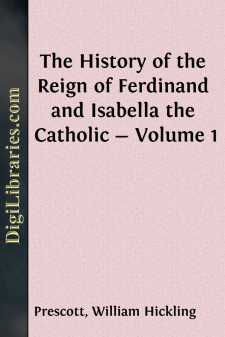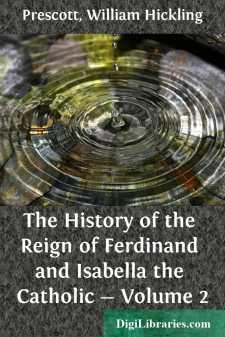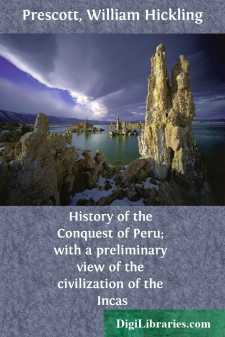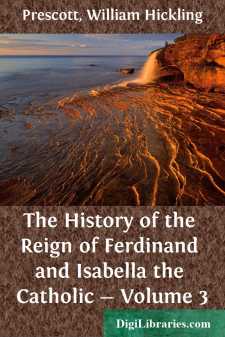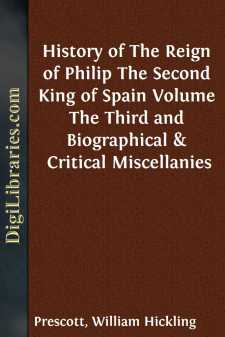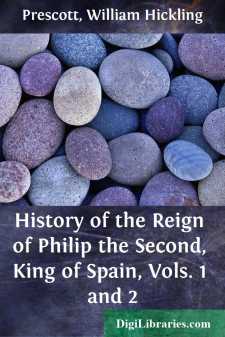Categories
- Antiques & Collectibles 13
- Architecture 36
- Art 48
- Bibles 22
- Biography & Autobiography 813
- Body, Mind & Spirit 142
- Business & Economics 28
- Children's Books 17
- Children's Fiction 14
- Computers 4
- Cooking 94
- Crafts & Hobbies 4
- Drama 346
- Education 46
- Family & Relationships 57
- Fiction 11829
- Games 19
- Gardening 17
- Health & Fitness 34
- History 1377
- House & Home 1
- Humor 147
- Juvenile Fiction 1873
- Juvenile Nonfiction 202
- Language Arts & Disciplines 88
- Law 16
- Literary Collections 686
- Literary Criticism 179
- Mathematics 13
- Medical 41
- Music 40
- Nature 179
- Non-Classifiable 1768
- Performing Arts 7
- Periodicals 1453
- Philosophy 64
- Photography 2
- Poetry 896
- Political Science 203
- Psychology 42
- Reference 154
- Religion 513
- Science 126
- Self-Help 84
- Social Science 81
- Sports & Recreation 34
- Study Aids 3
- Technology & Engineering 59
- Transportation 23
- Travel 463
- True Crime 29
The History of the Reign of Ferdinand and Isabella the Catholic - Volume 1
Description:
Excerpt
English writers have done more for the illustration of Spanish history, than for that of any other except their own. To say nothing of the recent general compendium, executed for the "Cabinet Cyclopaedia," a work of singular acuteness and information, we have particular narratives of the several reigns, in an unbroken series, from the emperor Charles the Fifth (the First of Spain) to Charles the Third, at the close of the last century, by authors whose names are a sufficient guaranty for the excellence of their productions. It is singular, that, with this attention to the modern history of the Peninsula, there should be no particular account of the period which may be considered as the proper basis of it,— the reign of Ferdinand and Isabella.
In this reign, the several States, into which the country had been broken up for ages, were brought under a common rule; the kingdom of Naples was conquered; America discovered and colonized; the ancient empire of the Spanish Arabs subverted; the dread tribunal of the Modern Inquisition established; the Jews, who contributed so sensibly to the wealth and civilization of the country, were banished; and, in fine, such changes were introduced into the interior administration of the monarchy, as have left a permanent impression on the character and condition of the nation.
The actors in these events were every way suited to their importance. Besides the reigning sovereigns, Ferdinand and Isabella, the latter certainly one of the most interesting personages in history, we have, in political affairs, that consummate statesman, Cardinal Ximenes, in military, the "Great Captain," Gonsalvo de Cordova, and in maritime, the most successful navigator of any age, Christopher Columbus; whose entire biographies fall within the limits of this period. Even such portions of it as have been incidentally touched by English writers, as the Italian wars, for example, have been drawn so exclusively from French and Italian sources, that they may be said to be untrodden ground for the historian of Spain. [1]
It must be admitted, however, that an account of this reign could not have been undertaken at any preceding period, with anything like the advantages at present afforded; owing to the light which recent researches of Spanish scholars, in the greater freedom of inquiry now enjoyed, have shed on some of its most interesting and least familiar features. The most important of the works to which I allude are, the History of the Inquisition, from official documents, by its secretary, Llorente; the analysis of the political institutions of the kingdom, by such writers as Marina, Sempere, and Capmany; the literal version, now made for the first time, of the Spanish-Arab chronicles, by Conde; the collection of original and unpublished documents, illustrating the history of Columbus and the early Castilian navigators, by Navarrete; and, lastly, the copious illustrations of Isabella's reign, by Clemencin, the late lamented secretary of the Royal Academy of History, forming the sixth volume of its valuable Memoirs.
It was the knowledge of these facilities for doing justice to this subject, as well as its intrinsic merits, which led me, ten years since, to select it; and surely no subject could be found more suitable for the pen of an American, than a history of that reign, under the auspices of which the existence of his own favored quarter of the globe was first revealed. As I was conscious that the value of the history must depend mainly on that of its materials, I have spared neither pains nor expense, from the first, in collecting the most authentic. In accomplishing this, I must acknowledge the services of my friends, Mr. Alexander H. Everett, then minister plenipotentiary from the United States to the court of Madrid, Mr....


